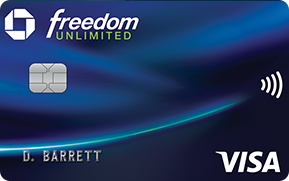- myFICO® Forums
- Bouncing Back from Credit Problems
- Bankruptcy
- Chapter 13 after chapter 7 question
- Subscribe to RSS Feed
- Mark Topic as New
- Mark Topic as Read
- Float this Topic for Current User
- Bookmark
- Subscribe
- Mute
- Printer Friendly Page
Chapter 13 after chapter 7 question
Is your credit card giving you the perks you want?
Browse credit cards from a variety of issuers to see if there's a better card for you.
- Mark as New
- Bookmark
- Subscribe
- Mute
- Subscribe to RSS Feed
- Permalink
- Report Inappropriate Content
Chapter 13 after chapter 7 question
Hello all,
the situation is as follows
my husband and I own a home - we are both on a deed.
i am the only one on a mortgage.
i filed and discharged from ch 7. Mortgage was not reaffirm. But we are staying in and making payments - no issues.
Now ... my husband thinking to file now - will prob not qualify for 7, may end up w 13.
my question is on a Means test will he be able to include the mortgae we are paying even though it was discharged? Discharged means no obligation... can it be included as a valid expense ?
thanks a million and Happy New Year!
- Mark as New
- Bookmark
- Subscribe
- Mute
- Subscribe to RSS Feed
- Permalink
- Report Inappropriate Content
Re: Chapter 13 after chapter 7 question
Oh boy. I hope you don't end up like my sister did when she filed for Chapter 7 in 2009 and then found out several years later that the last 3 years of house payments she had made were for a house she didn't legally own anymore.
You really need to be asking these questions to a competant bankruptcy attorney in your area.
- Mark as New
- Bookmark
- Subscribe
- Mute
- Subscribe to RSS Feed
- Permalink
- Report Inappropriate Content
Re: Chapter 13 after chapter 7 question
@Marchelalal wrote:Hello all,
the situation is as follows
my husband and I own a home - we are both on a deed.
i am the only one on a mortgage.
i filed and discharged from ch 7. Mortgage was not reaffirm. But we are staying in and making payments - no issues.
Now ... my husband thinking to file now - will prob not qualify for 7, may end up w 13.
my question is on a Means test will he be able to include the mortgae we are paying even though it was discharged? Discharged means no obligation... can it be included as a valid expense ?thanks a million and Happy New Year!
Given your mortgage is a secured debt, it is my understanding your mortgage was not discharged in the same way unsecured debt is discharged, and as such, there is an implied obligation to keep paying it or the mortgage holder can take your house. With that said, I am about 90% certain you can include it on the Means test for a Chapter 13; of course as @visionsdivine suggested, you really need to make the ultimate decision after consulting an attorney.
Chapter 13:
- Burned: AMEX, Chase, Citi, Wells Fargo, and South County Bank (now Bank of Southern California)
- Filed: 26-Feb-2015
- MoC: 01-Mar-2015
- 1st Payment (posted): 23-Mar-2015
- Last Payment (posted): 07-Feb-2020
- Discharged: 04-Mar-2020
- Closed: 23-Jun-2020
I categorically refuse to do AZEO!






In the proverbial sock drawer:



- Mark as New
- Bookmark
- Subscribe
- Mute
- Subscribe to RSS Feed
- Permalink
- Report Inappropriate Content
Re: Chapter 13 after chapter 7 question
Rephrasing a bit:
My husband and I own a home - we are both on a deed. I am the only one on a mortgage. I filed and discharged from ch 7. Mortgage was not reaffirmed. Payments are current. My husband has decided that he wants to file bankruptcy. He probably will not qualify for Chapter 7 and be required to file a Chapter 13. My questions are:
1. Will my husband (who is not on the loan) be able to include the mortgage payment when filling out the Means Test?
2. Does my discharge play a roll in my husband’s case?
A. These are questions your husband needs to ask his attorney to make sure of the correct answers.
B. As it relates to question 1, if it is not his loan, the debt is not included in his bankruptcy therefore he would not be able to include the mortgage payment as part of the Means Test (different from Schedule J - see below). This assumes that there is no case law in your district (wherever that is), finding differently.
C. As it relates to question 2, your discharge has no impact on your husband (unless you live in a community property state - you did not indicate where you live). The mortgage payment is a normal monthly expense that he will include for the household expenses on Schedule J. You (and your husband) will continue to make payments because, if you don’t, the lender will foreclose. While you got rid of the lender’s ability to require payments from you, you did not get rid of the lender’s lien. If you do not voluntarily make payments, the lender will exercise its lien rights.
Hope this helps.
Des.